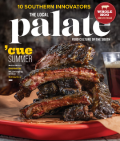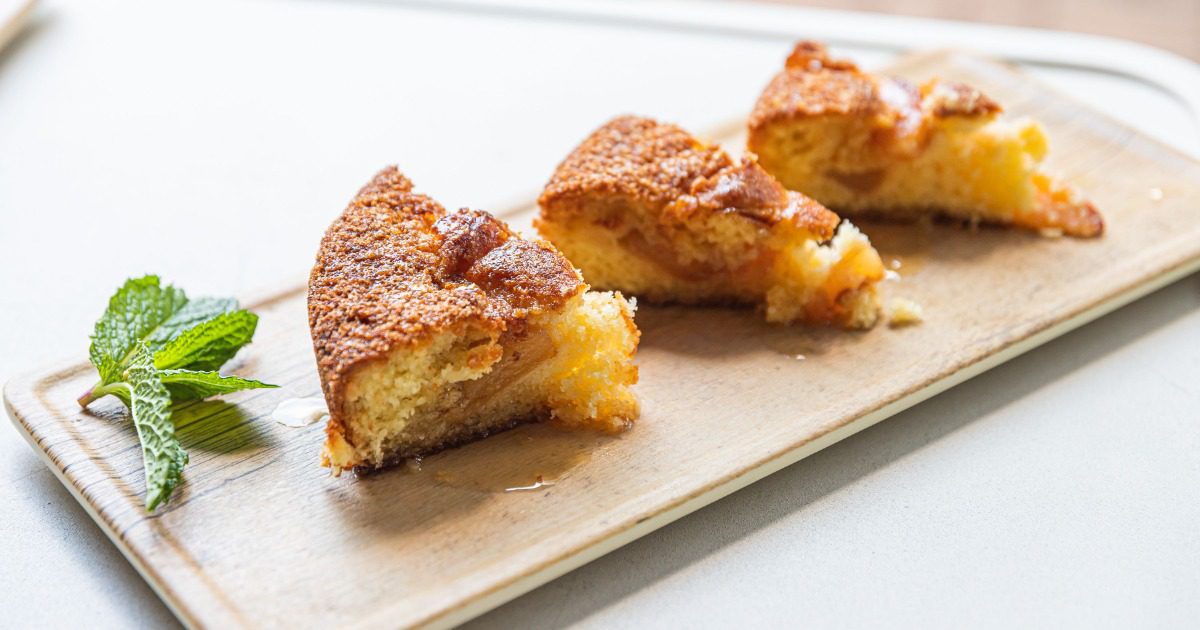Rosh Hashanah marks the celebration of the Jewish new year every fall. It begins the High Holy Days and culminates with Yom Kippur, considered the most sacred day within the Jewish religion. The two-and-a-half-day celebration of Rosh Hashanah is a time for prayer and a time to gather with family, friends, and feasting—especially on sweet treats, such as challah and apples and honey.
The Local Palate caught up with North Carolina-based chef Shai Fargian and New Orleans-based Alon Shaya (of Yafo Kitchen and Saba, respectively) to discuss the fundamental role their families’ Rosh Hashanah recipes and food holds in their memories and current traditions.
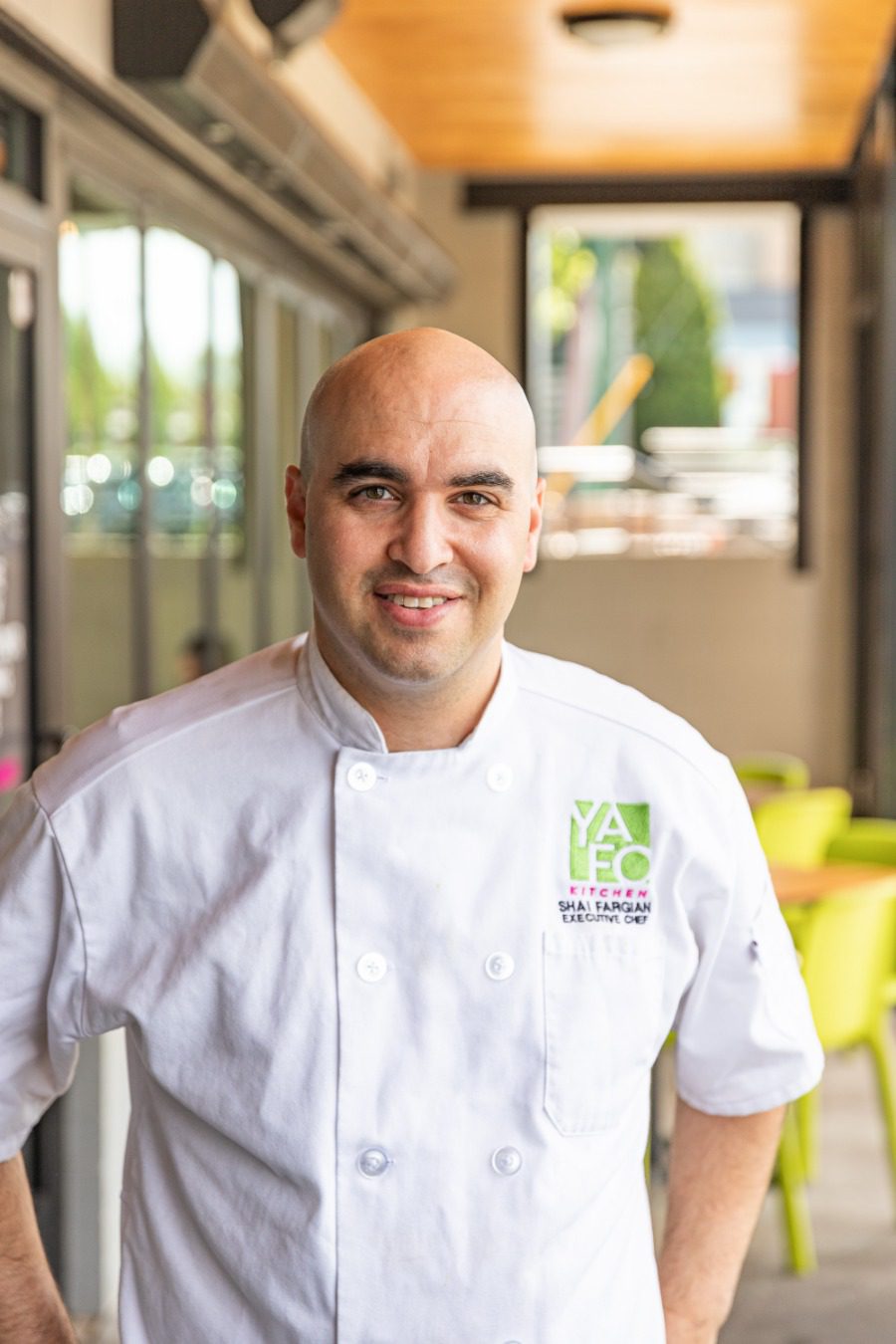
Fargian grew up cooking alongside his grandmother in Israel, where he learned to cook traditional Persian meals. He spent seven years serving in the Israeli army and additionally worked professionally in kitchens alongside Avi Bitton and, later in New York City, David Burke. Fargian and his wife, Sharon (a native North Carolinian), eventually settled in Charlotte. There he connected with Frank Scabelli, and the two fused their expertise to open Yafo Kitchen, which blends Greek, Turkish, and Persian cuisines into one menu. For him, one of the main ways he grew up celebrating Rosh Hashanah was through the food and recipes that his family’s gatherings centered around.
Shaya is the founder of Pomegranate Hospitality Group, which opened Saba in New Orleans and Safta in Denver, Colorado. Alon’s newest restaurant, Miss River, is scheduled to open in the Four Seasons Hotel and Private Residences New Orleans in mid-2021. Born in Israel, Shaya grew up in Philadelphia, and his debut cookbook Shaya: An Odyssey of Food, My Journey Back to Israel was published in 2018. His restaurants draw their influences from Middle Eastern, European, and North African culinary cultures. His love of food is rivaled by his love for teaching people about food. Growing up, Rosh Hashanah was a time that Shaya could enjoy his family’s company and, most importantly, the abundant supply of sweets.
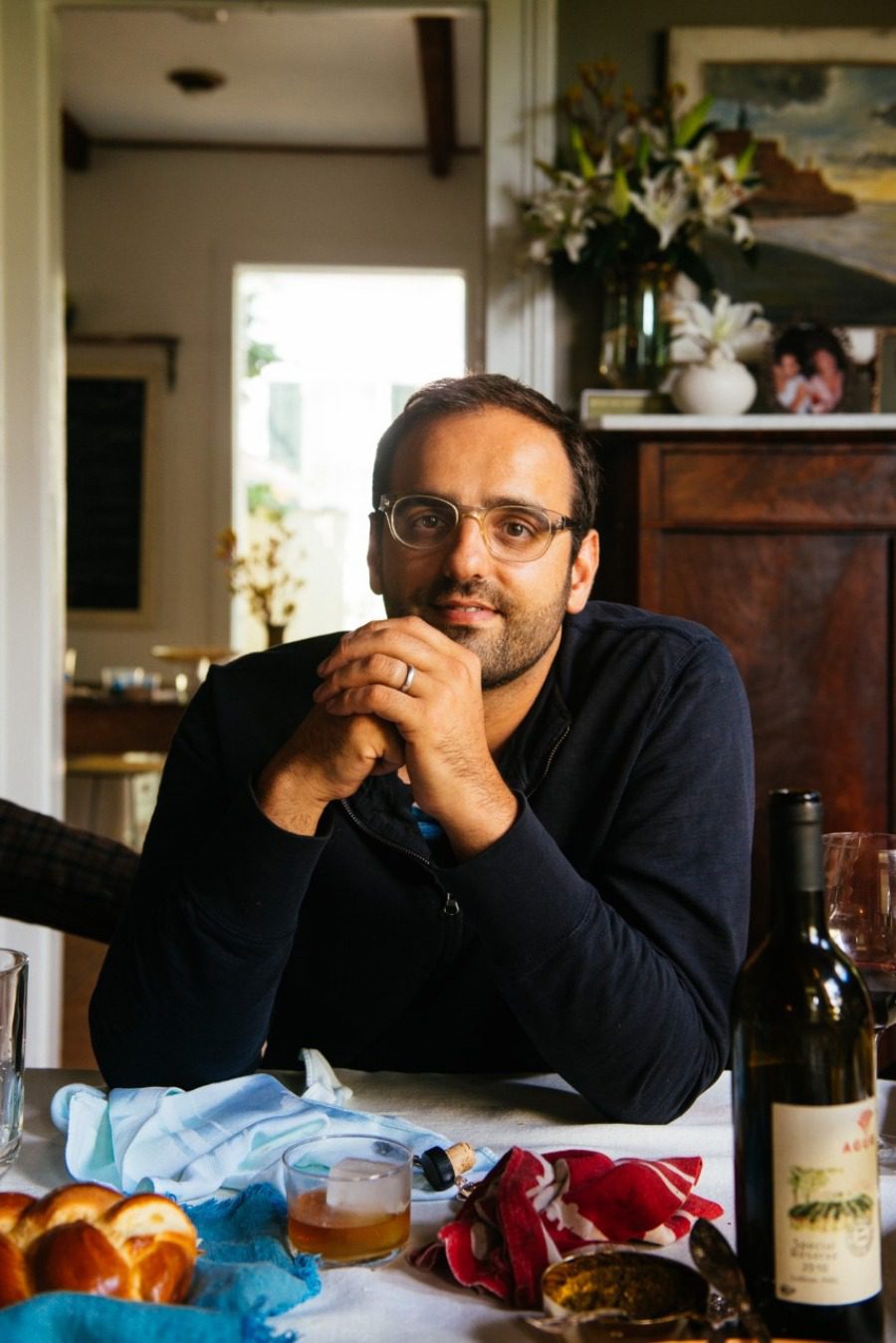
Food Memories Around Rosh Hashanah
TLP: What are your memories and traditions associated with Rosh Hashanah? Did you grow up celebrating?
Alon Shaya: I grew up in the kitchen with my mom during Rosh Hashanah. She’d make these sweet and potent rum balls with old chocolate cake and shaved coconut. As I got older and knew better, I ate myself sick from them and tried to get tipsy while doing it. Lots of apple cakes, honey cakes, and every combination of those two into cookies, strudels, and other sweets you could think of. We celebrated Rosh Hashanah by going to synagogue and diving into all those sweet desserts with the hope for a bright new year.
Shai Fargian: Growing up in Israel, the Jewish holidays are national holidays, and Rosh Hashanah is a big one. Everything is closed for two and a half days, and everyone greets you with a “happy new year” when they see you for weeks before and after. On the evening of Rosh Hashanah, we always had a big family gathering and dinner with all of my extended family (close to thirty people), everyone dresses up, and we eat and hang out for several hours. On the next day, we have a huge cookout for the whole family again and include some friends as well.
TLP: Personally speaking, what role does food play in the way you observe Rosh Hashanah?
SF: A huge one! Two weeks before Rosh Hashanah we figure out who is hosting each event and start making lists of who brings what. It’s a big logistical operation that is always involved with a lot of family drama (it’s not a good holiday if there is no family drama). When I was younger my grandparents used to buy a whole lamb for the holiday and we would butcher it and cook it over the two meals. It’s a really special holiday where everyone gets to showcase what they like to make.
AS: Food always played the lead role. Food and then eventually eating that food became the entire show, and I never paid attention to much else. Food was everything, and in many ways still is. I’ve never been a super religious person, but I have always worshipped the power of food.
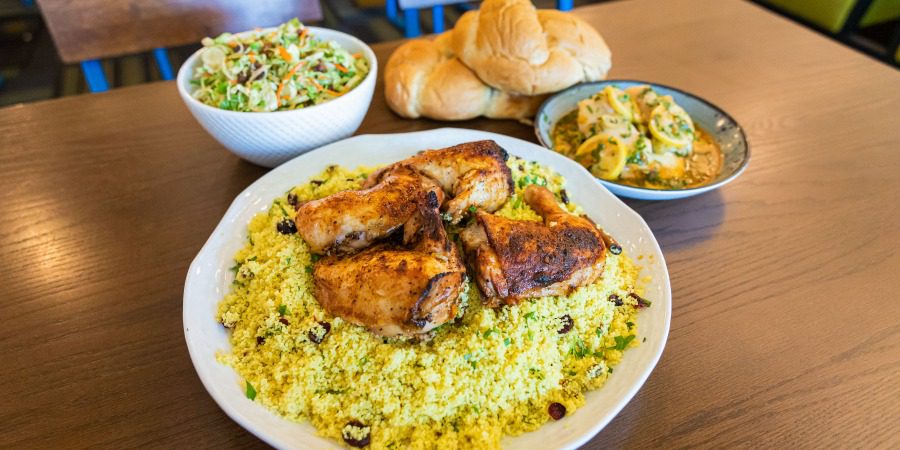
TLP: What is a traditional or nontraditional food or dish that holds a special spot in your memories? What dishes do you regularly prepare and share during the holiday?
AS: Honey cake with walnuts was always the traditional dish that I remembered most. I felt like it ended up at every table we encountered during Rosh Hashanah. My mom would make it and so would my aunt and all of my mom’s friends. I knew it was Rosh Hashanah when I ended up being stuck around a table of adults talking about things I could care less about, but I didn’t mind because there was honey cake everywhere.
SF: Growing up in a Jewish Sephardic family in Israel (my father’s family is from Iran, Sephardic Jews are Jews from North Africa and West Asia. Most American Jews are Ashkenazi, which are European Jews), our traditional foods were a bit different then what is common in the United States.
We would start with a soup (but without matzo balls) and then serve fish—the tradition is a whole fish (head to tail) so we pray to be the head and not the tail in the new year. We also eat pomegranate to symbolize that in the coming year we should do as many good deeds as the seeds of a pomegranate and apples dipped in honey so we have a sweet new year. For the entree, we served roasted chickens and roasted leg of lamb with jeweled rice on the side (a very important dish in Persian culture) and roasted pumpkin (it’s a fall holiday, and pumpkin is sweet and in season). For dessert, we always have a honey cake and apple cake.
TLP: How are you celebrating this year and at your restaurants?
SF: After six years of Yafo being open, we feel that our guest base is more open to getting more traditional food and special menus from us. We wanted to make it easier for them in these crazy times, so we came up with a pre-fixed Rosh Hashanah menu for the whole family. It even includes the pomegranate, locally made challah, and a jar of local honey. I pulled a lot of inspiration from my family traditions and combined it with some Jewish American traditions and things that I like to cook for my family nowadays. The menu includes a wild-caught fish tagine with preserved lemon and green olives, pomegranate braised springer mountain chicken, USDA prime braised brisket, jeweled couscous, shaved brussels and apple salad with a honey vinaigrette, and roasted delicata squash stuffed with herbed rice and pomegranate seeds. We’re also baking apple-honey cakes to include!
[In New Orleans, Rosh Hashanah falls in the aftermath of Hurricane Ida.]
AS: This year we were planning on making round challahs with dips and spreads and selling them from Saba, but hurricane Ida put a stop to it all. We are celebrating this year while picking up the pieces from Ida and praying that next year will be sweeter.
ROSH HASHANAH RECIPES
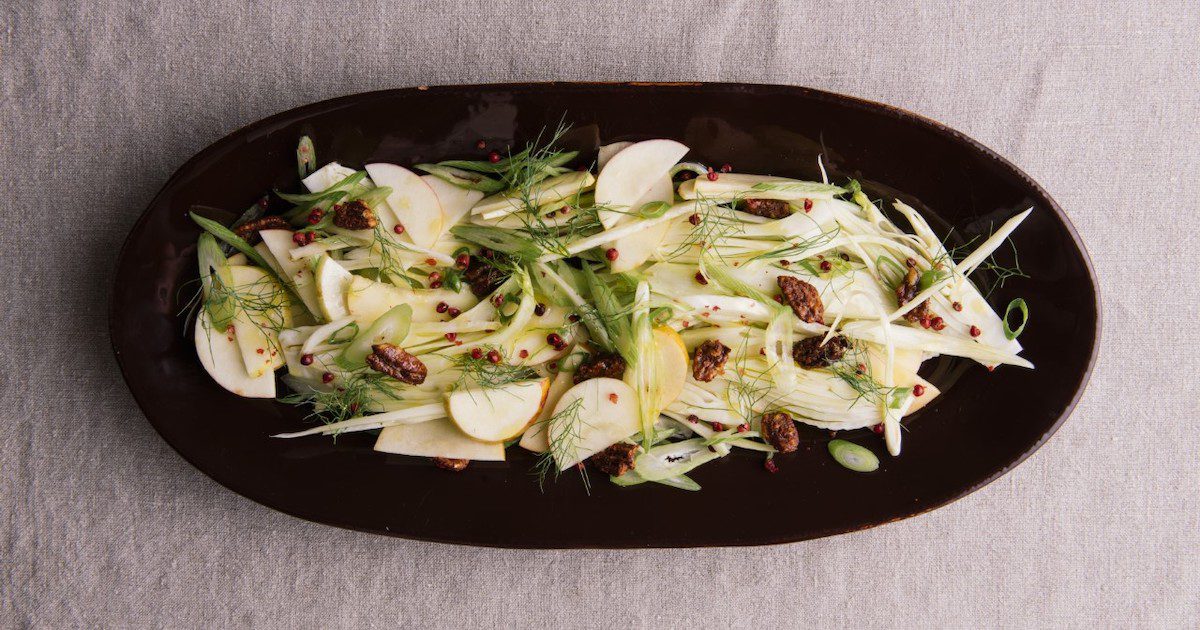
Apple and Fennel Salad with Candied Pecans
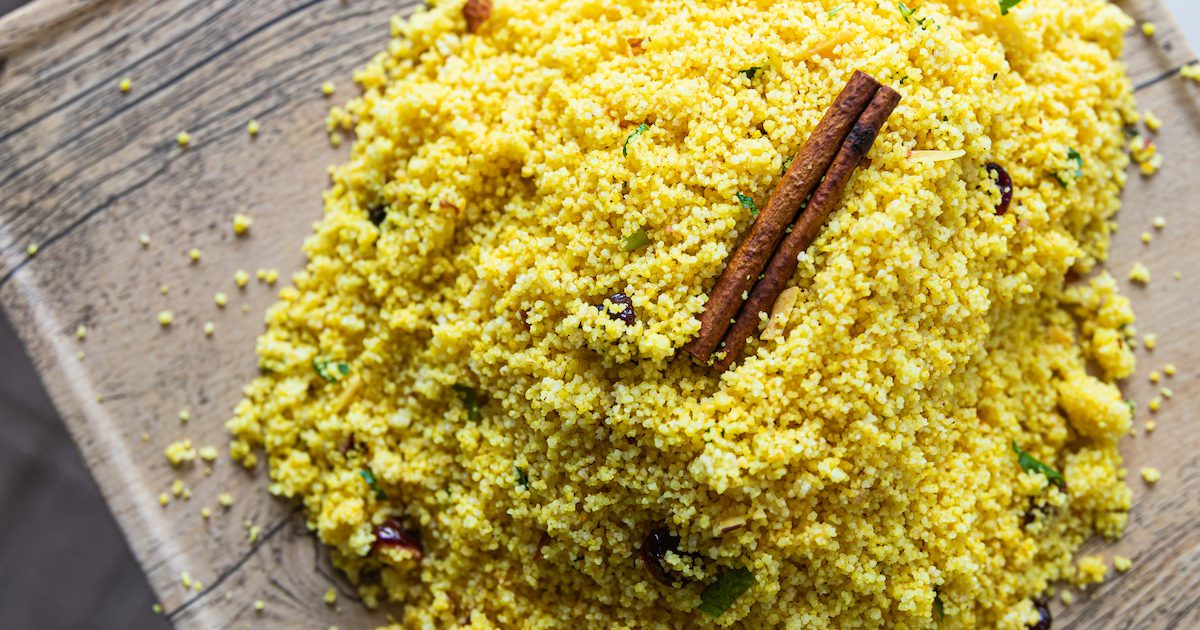
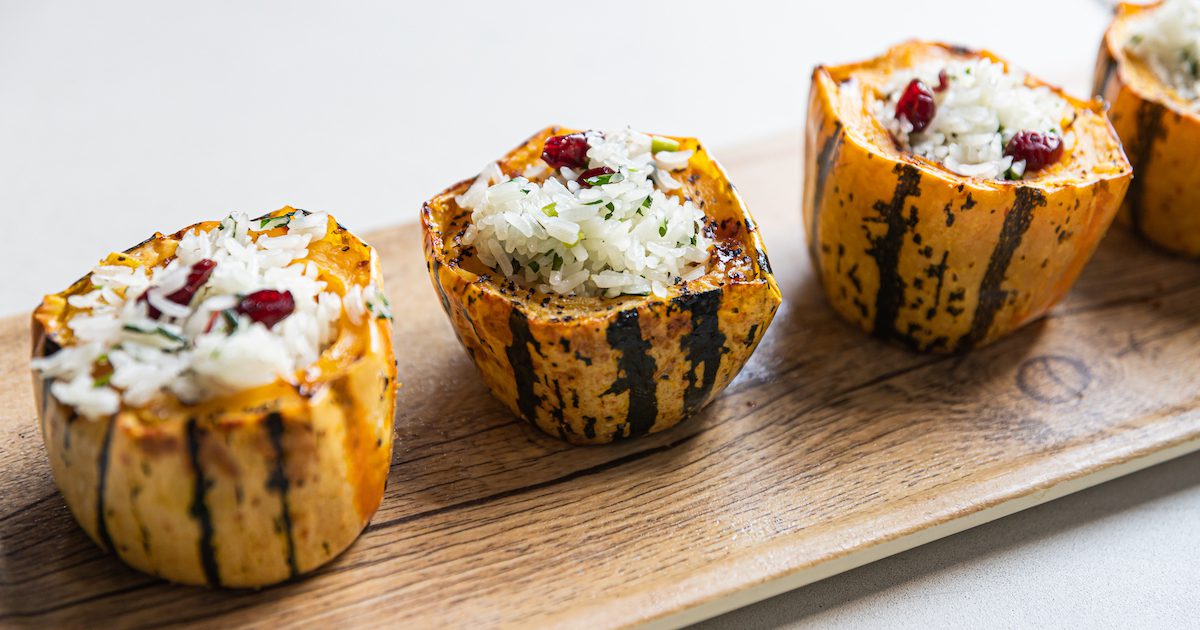
Herbed Rice-Stuffed Delicata Squash

share
trending content
-
New Restaurants in Arkansas
-
Shrimp and Grits: A History
by Erin Byers Murray -
Tea Cakes, A Brief History
by TLP Editors -
Gullah Geechee Home Cooking
by Erin Byers Murray -
The History of Fajitas
by TLP Editors
More From Roots
-
The Pakalachian Food Truck Blends Traditions | Listen
-
Treasuring Time at the Table at a’Verde
-
Remembering Malinda Russell through her Recipes
-
Ricky Moore’s Juneteenth Lunchboxes
-
Hamsa: All Roads Lead to Israel
